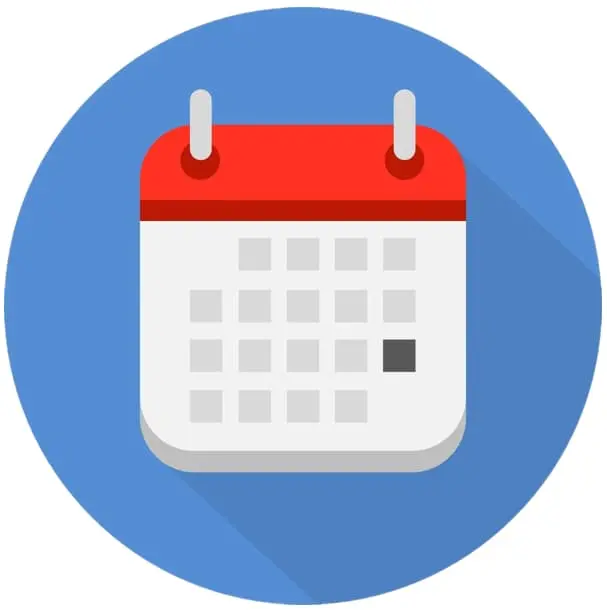Is It Safe to Delay Your Period?

Content by

Last Updated
Table of Contents
- Reasons to Consider Delaying Your Period
- Risks of Delaying Your Period
- Is it Safe to Delay Your Period Using Norethisterone?
- Is it Safe to Delay Your Period With the Combined Contraceptive Pill?
- Is it Safe to Use The Mini Pill and Not Have a Period?
- Is it Dangerous to Delay Your Period?
Is it dangerous to delay your period?”. A question most women will ask when they want to delay their period at some point in their life. There are two different ways in which this can be done safely. The first is by using a tablet called norethisterone. The second way (for those who take the combined pill), is by taking back to back packets of the combined pill, without a break so that a withdrawal bleed does not occur. If you want to delay your period, you may have some concerns about the effects on your natural menstrual cycle. In this article, we'll explore various methods to delay your period and assess their safety.
Reasons to Consider Delaying Your Period
Many women choose to delay their menstruation for various practical and personal reasons. Some common motivations include attending important events such as weddings or holidays where they might want to avoid the discomfort and inconvenience of having a period. Athletes may also delay their periods to avoid menstrual symptoms during significant competitions. Additionally, women with severe menstrual symptoms such as heavy bleeding, debilitating cramps, or mood swings might find relief by postponing their period. Conditions such as Endometriosis can cause severe menstrual cramps and chronic pain, thus delaying a period can help manage the symptoms more effectively. [1]
It's important, however, to consult healthcare professionals before taking any period delay medication to understand any potential risks and to ensure it's a safe option for you.
Risks of Delaying Your Period
Delaying your period, typically through the use of hormonal medications such as birth control pills or specially designed period delay pills, is generally considered safe for most women.
There are however some potential risks and side effects to be aware of. Here are some key considerations:
- Hormonal Imbalance: Prolonged use of medication to delay menstruation can lead to hormonal imbalances, which might cause irregular periods, unexpected spotting, or prolonged bleeding once medication is stopped.
- Side Effects: Common side effects of hormonal treatments include nausea, headaches, weight gain, mood changes, and breast tenderness.
- Blood Clots: There is a slightly increased risk of developing blood clots (venous thromboembolism), particularly for women who smoke or have a history of blood clots.
- Masking Health Issues: Regular menstruation is often a sign of general health. Delaying your period regularly could mask symptoms of potential health problems that require further investigation.
With any medication, you should always read the patient information leaflet for a full list of side effects, and what to look out for.
Is it Safe to Delay Your Period Using Norethisterone?
Progesterone is a hormone that is involved in regulating the female menstrual cycle. Throughout the course of the month, progesterone levels fluctuate, and towards the end of the month, levels drop. This drop in progesterone causes the lining of the womb to break down, which is then expelled from the body in the form of a period. Norethisterone is a synthetic version of progesterone which works by artificially keeping progesterone levels raised. This then stops the lining of the womb from breaking down. If the lining of the womb is not broken down, it does not need to be expelled from the body (via a period), and therefore, a period does not occur.
Norethisterone can be used to delay your period for up to 17 days. It should be taken three days before your period is due, for a maximum of 20 days. Your period will start two to three days after you stop taking norethisterone.
If you do not want to take the contraceptive pill, a GP can prescribe norethisterone to delay your periods.
Norethisterone is safe for most women to take on a short-term basis. There are, however, some women for whom norethisterone is not suitable. For example, women who are susceptible to blood clots or some women who have high blood pressure or diabetes. It is important to check with your doctor to see if you are eligible to delay your period using norethisterone. You can visit an online period delay clinic for more information.
Is it Safe to Delay Your Period With the Combined Contraceptive Pill?
When taking the combined contraceptive pill, there is a break of 7 days, known as the “pill free interval”. During these seven days, you will have what is known as a “breakthrough bleed”. It is possible to safely delay having a bleed by taking two packets back to back, in other words, skipping the pill free interval so that you do not experience a breakthrough bleed. This is a common and safe practice that works for 21-day monophasic pills such as Microgynon, Yasmin, Rigevidon and Cilest.
If you are taking ED (Every Day) pills, the same principle applies. The first 21 tablets are active pills which should be taken as usual. The next 7 pills are dummy pills, which you should skip taking and continue to the active pills of the next packet.
It is possible to take up to three packets back to back, but you should speak to your doctor if you wish to take more than two packets consecutively.
If you are using a phasic pill, you should contact your doctor or pharmacist before attempting to delay your period. This is because each pill contains different quantities of hormones, so it may not be appropriate to simply take two packets back to back.
Is it Safe to Use The Mini Pill and Not Have a Period?
Most women who take the mini pill will not experience periods. Some women may experience “spotting” or irregular bleeds, however, there is no way to tell if you will experience any spotting or irregular bleeding using the mini pill, as this varies depending on the individual. Not having a period using the mini pill is normal and nothing to worry about. Periods occur when the lining of the womb is shed, but as the pill stops the development of the lining of the womb, there is nothing to shed.
Is it Dangerous to Delay Your Period?
For a majority of women, not having a period is safe. When taking norethisterone temporarily to delay your period, the lining of the womb is broken down and expelled from the body shortly after stopping norethisterone.
Skipping periods using contraception is also a safe practice. Periods are only required for those that wish to get pregnant. The lining of the womb thickens in preparation for the fertilised egg. The contraceptive pill stops the thickening of the lining of the womb. This means that it does not need to be expelled from the body in the form of a period. This means that in the case of the mini pill, your period is not “building up inside you”, as the pill stops the lining of the womb from developing.
It is also important to note that the bleed experienced during the seven day pill free interval when using the combined pill is not a natural period. It is the withdrawal of the synthetic hormones in the pill, mimicking a period; so taking two packets back to back temporarily, is safe.
If you are considering options to delay or skip your period, you can start a free online consultation with Chemist Click to find the right treatment for your individual needs.
Sources
- NHS UK. (n.d.). How can I delay my period? Retrieved 27th November, 2024, from https://www.nhs.uk/conditions/periods/period-problems/
- British National Formulary. (n.d.). Norethisterone. Retrieved 27th November, 2024, from https://bnf.nice.org.uk/drugs/norethisterone/
Whilst all of our content is written and reviewed by healthcare professionals, it is not intended to be substituted for or used as medical advice. If you have any questions or concerns about your health, please speak to your doctor.
